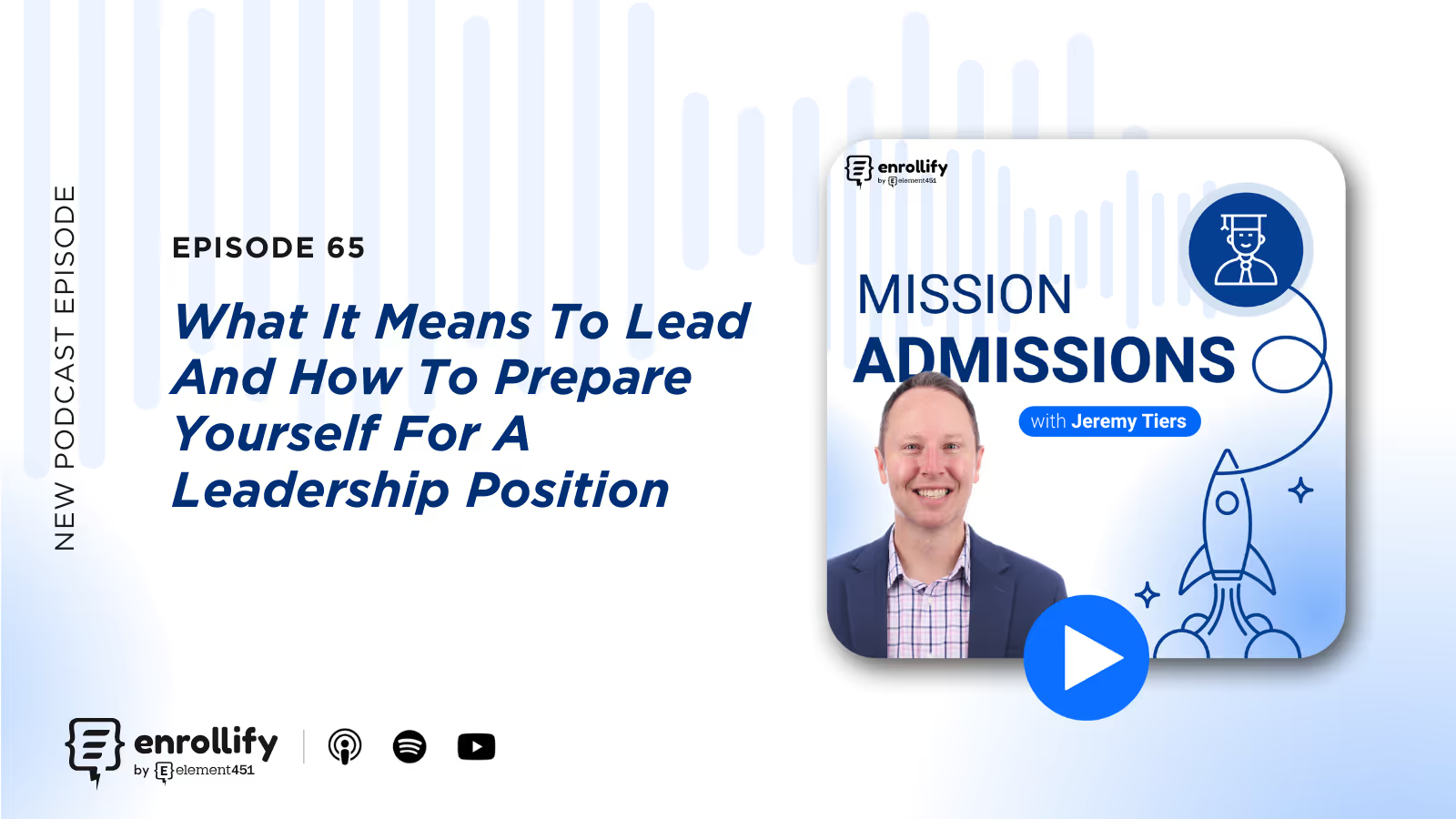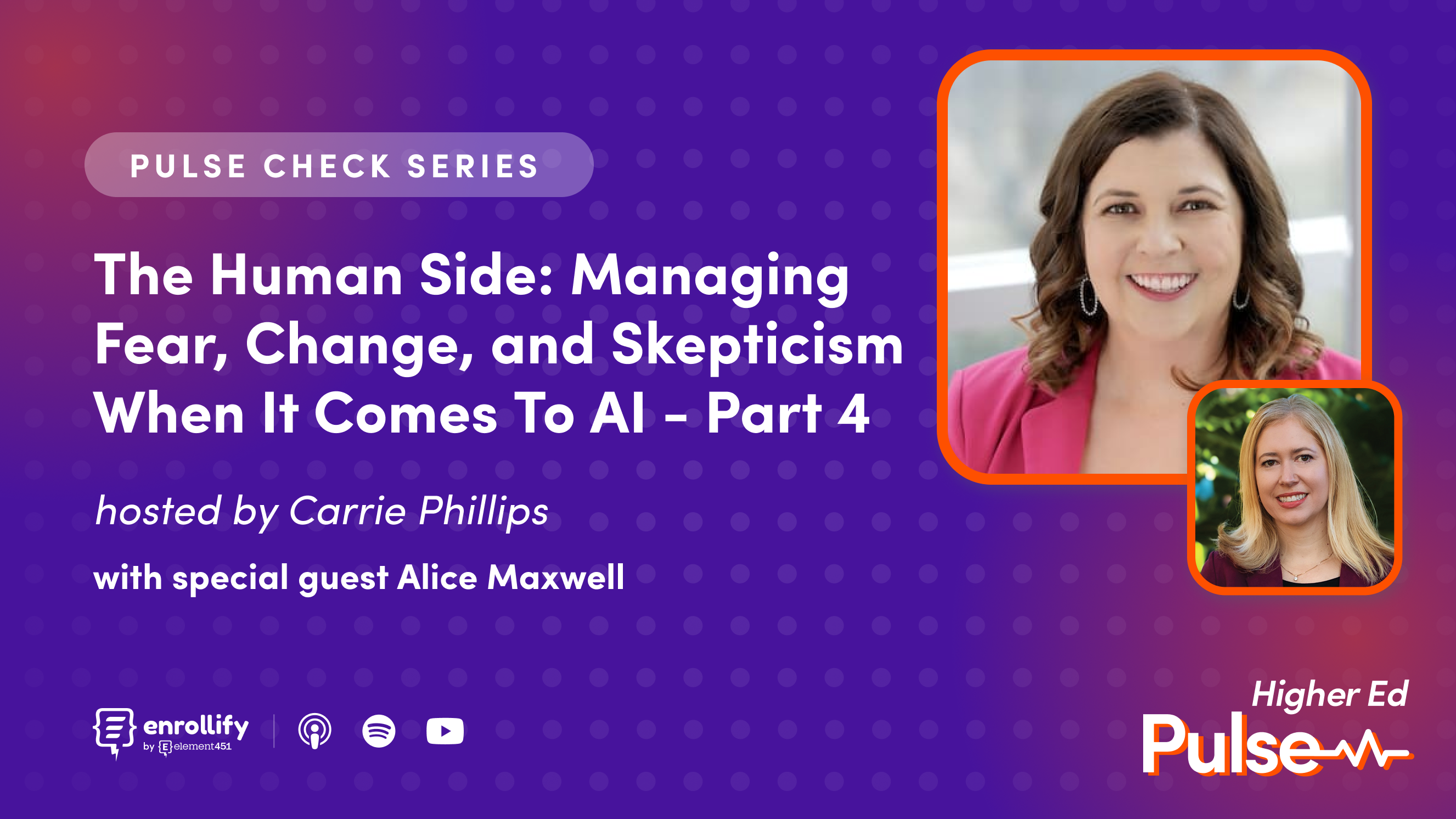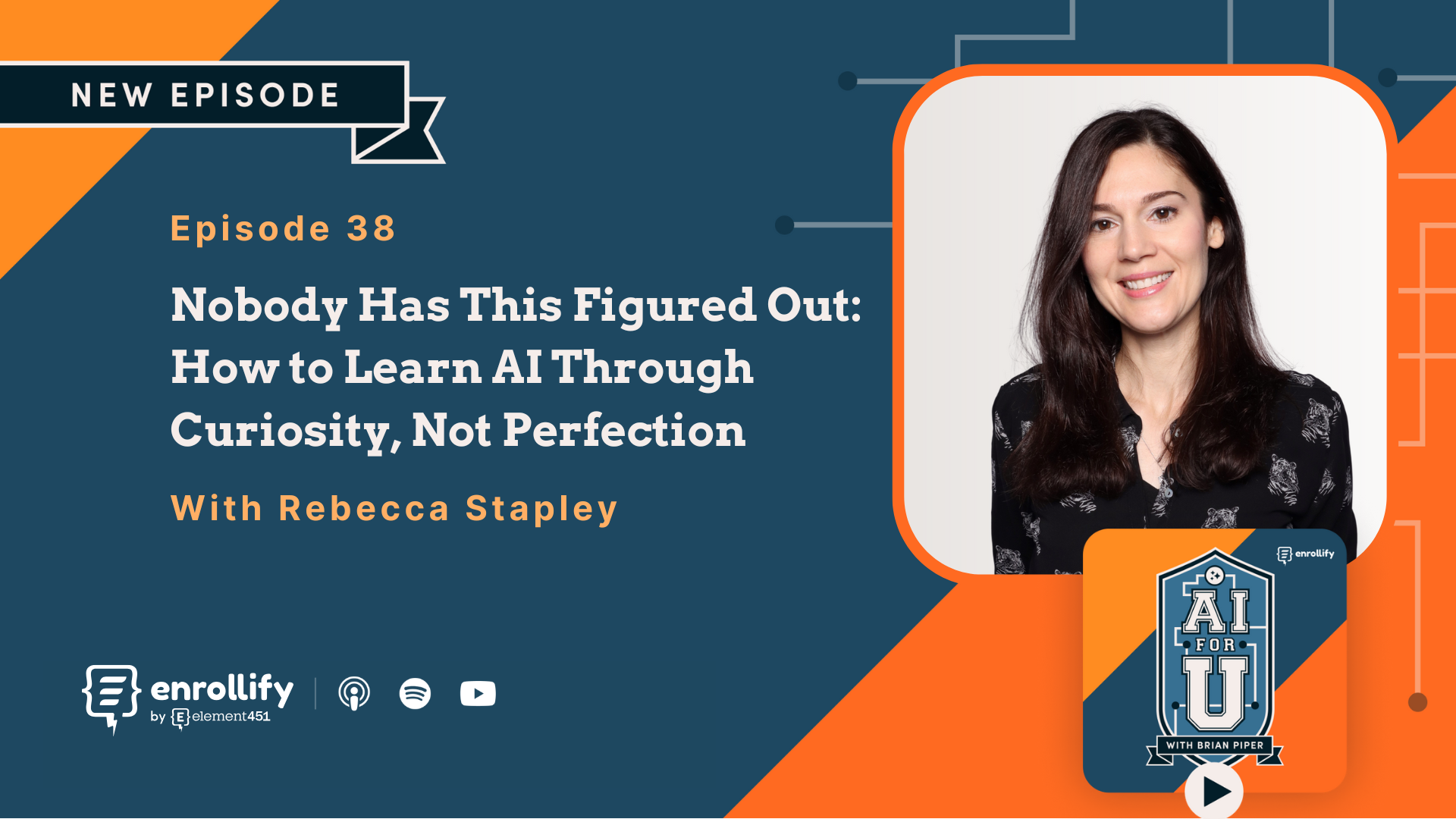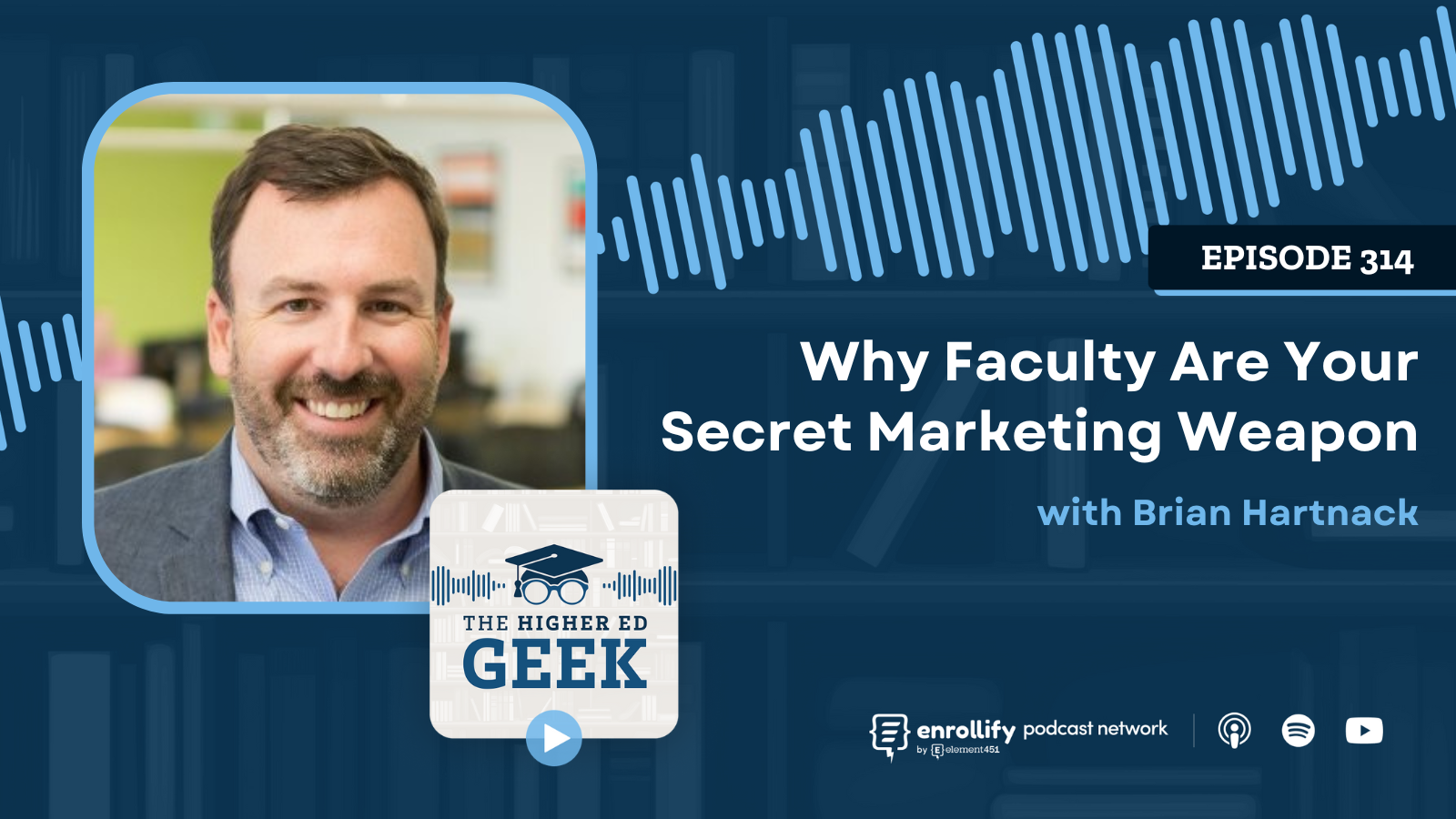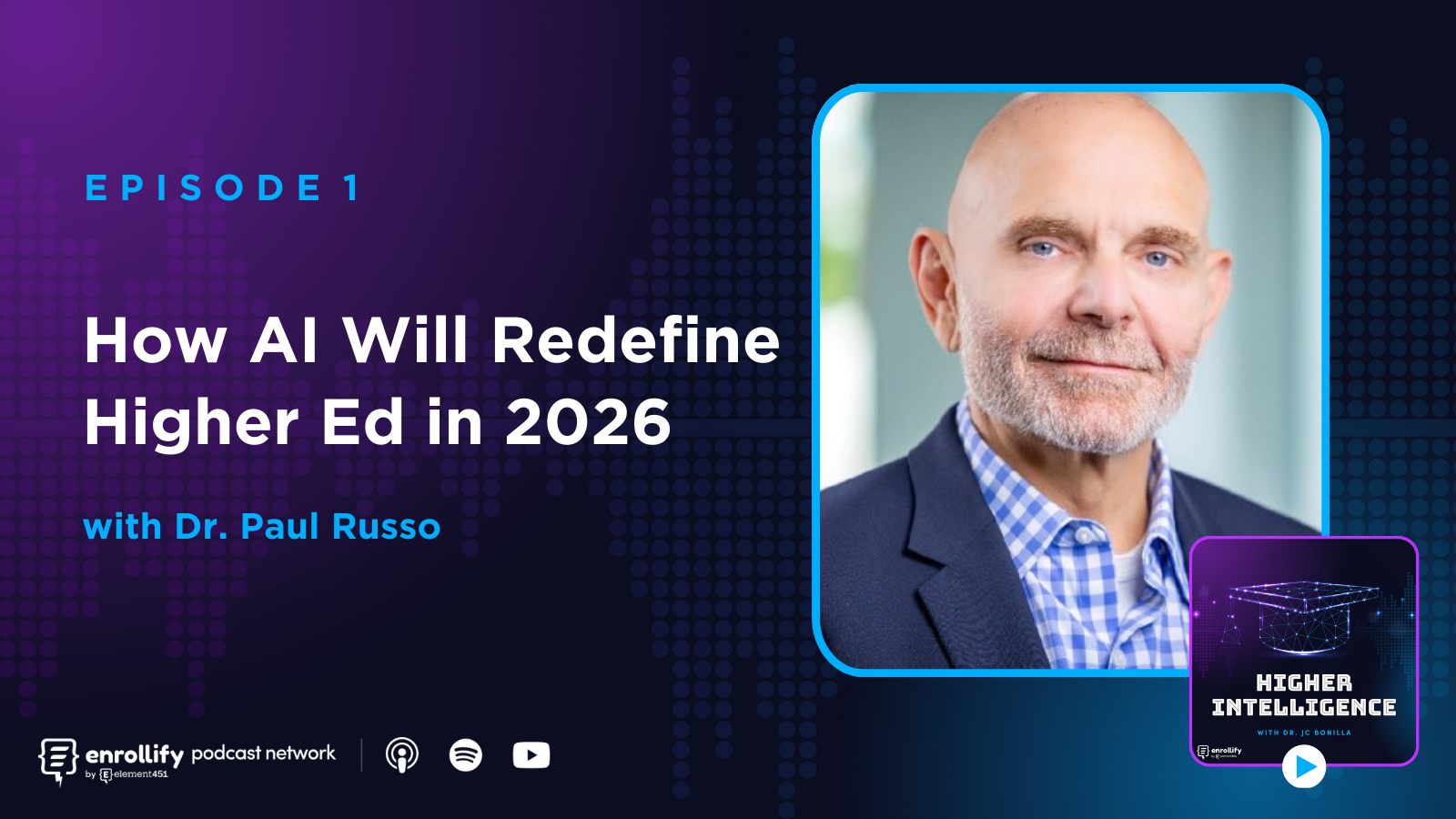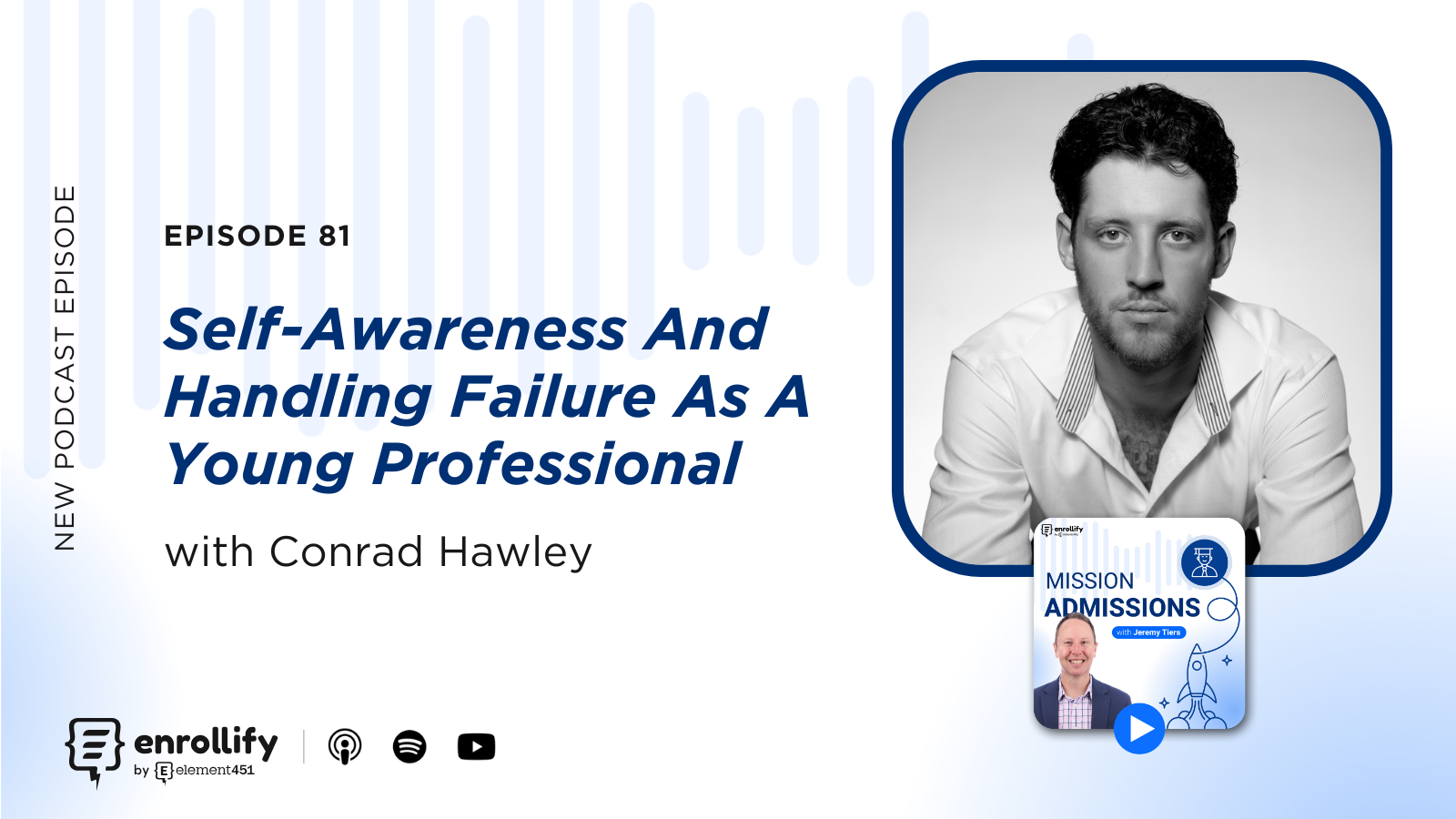About the Episode
Got a story to tell? An innovative idea to share? Fill out our guest nomination form and let's chat!
About the Episode:
In this quick take episode, Jeremy offers practical advice for those who have leadership and management aspirations. He talks about what it means to lead, shares skills and traits that effective leaders possess, and he outlines things you can do now to better prepare and position yourself for future opportunities.
Key Takeaways
- Leadership is about actions, not titles — anyone can “lead up” by modeling accountability, support, and recognition.
- Mastering time management and building daily structure is a vital leadership skill often overlooked in higher ed.
- A growth mindset and comfort with failure are foundational traits of strong, adaptable leaders.
- Owning mistakes and holding yourself accountable builds trust, boosts performance, and enhances team culture.
- Self-care and continuous reflection are non-negotiables for sustainable leadership development.
- Aspiring leaders must become comfortable with data, delegation, and difficult conversations.
- Building a diverse mentorship network accelerates personal and professional growth.
What does “leading up” actually mean?
Jeremy defines "leading up" as showing leadership through consistent, supportive behaviors — even without a formal title. It’s about taking initiative, helping colleagues, and finding ways to empower your team. For admissions professionals, that might mean sharing CRM expertise or mentoring peers in your office. The goal is to foster collaboration and drive results by proactively elevating the people around you.
True leadership, Jeremy says, is about making others feel confident and inspired. It’s not about micromanaging or seeking credit. It’s about being the person who steps up to solve problems, mentors others, and recognizes unspoken contributions across the team — just like Josh Allen did with “Slick Rick.” Every office has a Slick Rick, and leaders notice them.
How can admissions professionals grow into leaders?
Leadership starts with how you plan your day. According to Jeremy, high-performing leaders are master planners. They block time for every task and use calendars to stay accountable. This simple practice reduces stress and enhances productivity — essential for admissions counselors juggling travel, outreach, and student communication.
But it’s not just about managing time. Admissions pros should also invest in self-awareness: What do you want to improve? How do you want to grow? Build cross-functional relationships across your department. Get curious about your supervisor’s communication style. Learn from those around you, and be willing to try new things — especially if you're eager to step into leadership.
What’s the role of mindset in higher ed leadership?
Mindset is everything. Jeremy emphasizes that leaders must embrace growth over perfection. Fear of failure, judgment, or “rocking the boat” keeps too many professionals stuck in fixed mindsets. But taking calculated risks, learning from mistakes, and adapting are all key parts of successful leadership journeys.
That means shifting how you think about mistakes: they're not setbacks, but essential learning experiences. Leaders who own their mistakes and practice self-accountability earn trust — from their peers and the people they manage. Jeremy reminds us that no leadership path is mistake-free. The goal isn’t perfection — it’s progress.
What should aspiring leaders do to prepare for more responsibility?
The journey to leadership often requires letting go of the day-to-day work with students and embracing more strategic responsibilities. That’s tough for many in higher ed. But as Jeremy points out, helping your staff serve students better is still direct impact — it’s just a different kind.
Prospective leaders should reflect on their leadership style, values, and guiding principles. What kind of leader do you want to be? What do you want to be known for? From there, build your comfort with tools like CRM systems and your ability to interpret and act on data — because leadership in enrollment today is data-driven. You’ll also need to be okay with difficult conversations and accept that leadership may affect your work-life balance.
How do mentorship and self-care support leadership development?
Mentorship matters. Jeremy urges professionals to build a diverse network of mentors — including someone your age, someone one level above you, someone several levels up, and someone of a different gender. This variety provides broader insight and ensures you grow from different perspectives.
Equally important: prioritize self-care. Reflect weekly. Process wins and losses. Ask yourself where you need support. Jeremy dedicates time every Friday to this reflection and recommends building your own system. Leadership is hard — don’t try to do it alone. Whether it’s mental health, stress management, or growth planning, take care of yourself so you can take care of your team.
Connect With Our Host:
Jeremy Tiers
https://twitter.com/CoachTiers
Attend the 2025 Engage Summit!
The Engage Summit is the premier conference for forward-thinking leaders and practitioners dedicated to exploring the transformative power of AI in education.
Explore the strategies and tools to step into the next generation of student engagement, supercharged by AI. You'll leave ready to deliver the most personalized digital engagement experience every step of the way.
👉🏻 Register now to secure your spot in Charlotte, NC, on June 24-25, 2025!







